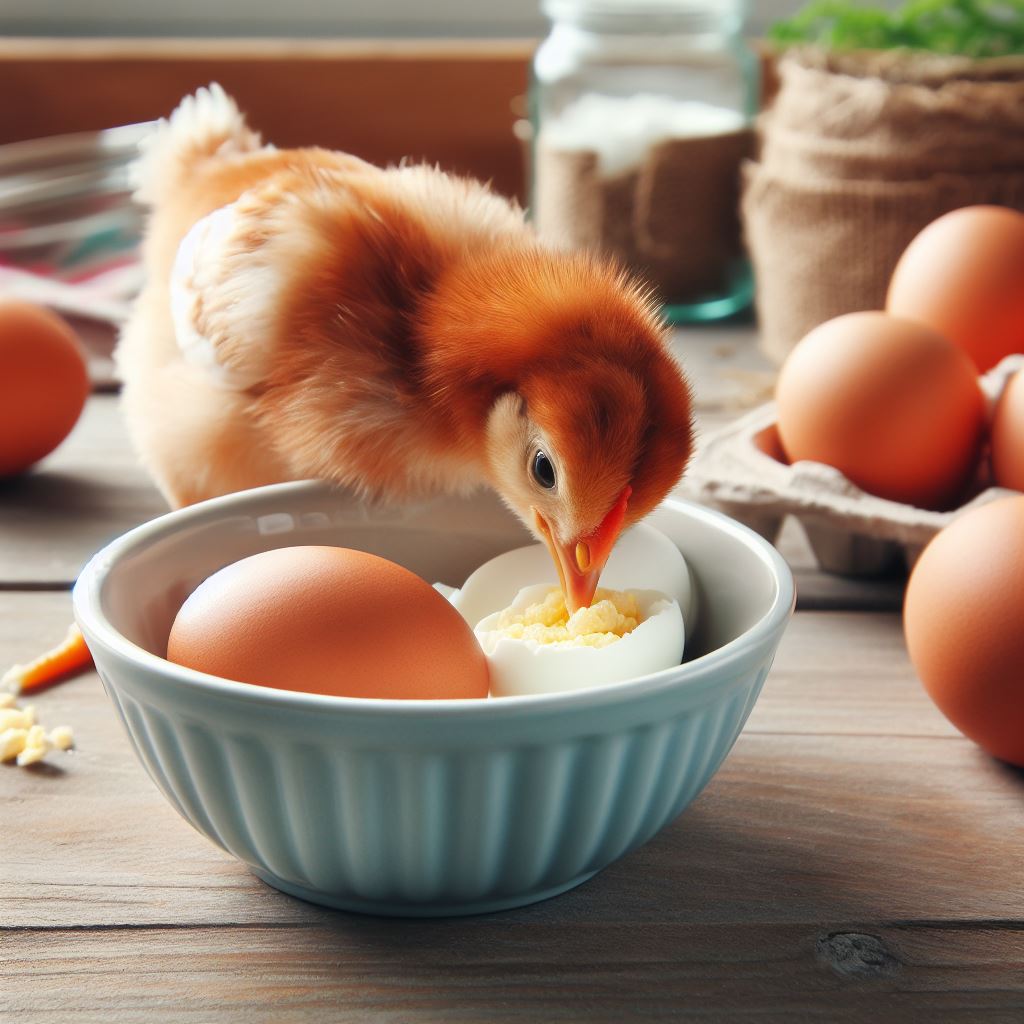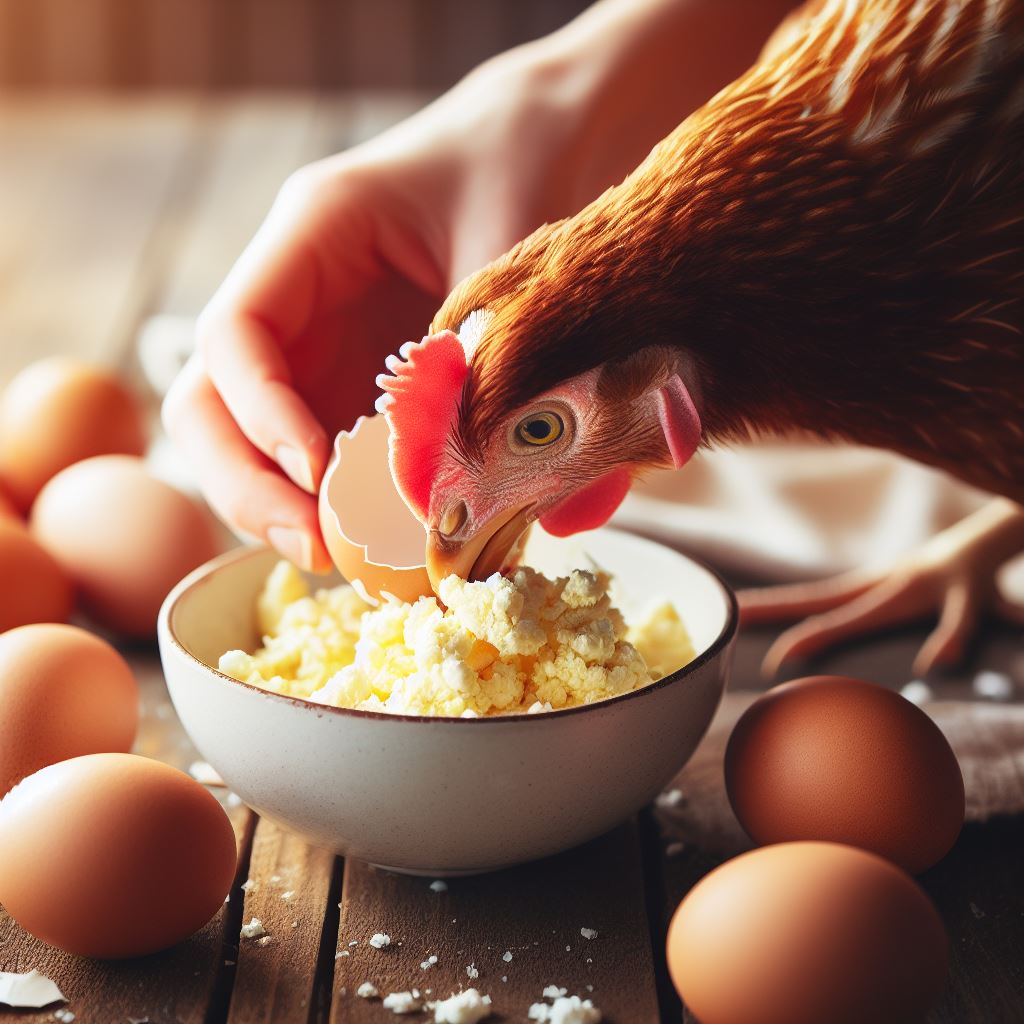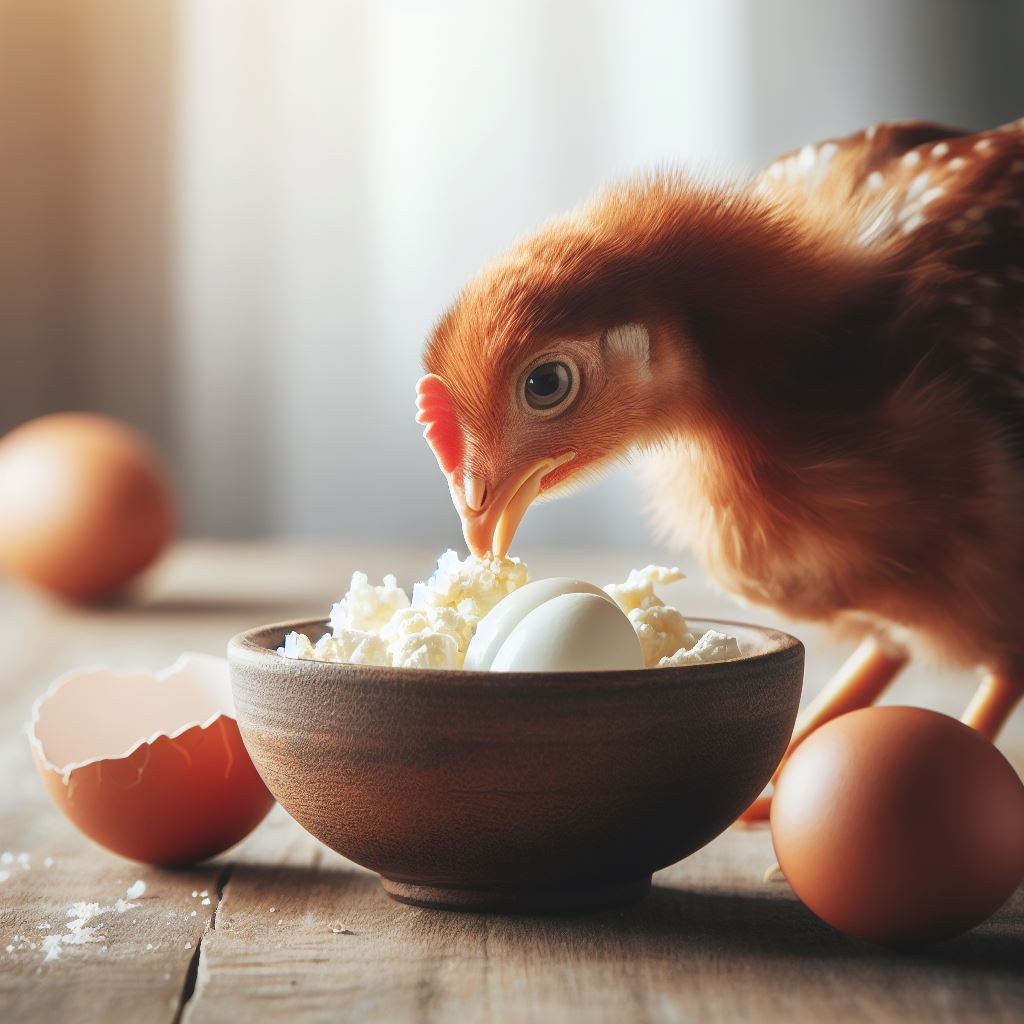Can Chickens Eat Boiled Eggs? Everything You Need to Know

Table of content:
- An Egg Source of Nutrition
- Preparing Boiled Eggs for Your Flock
- Feeding Guidelines and Amounts
- Benefits of Feeding Boiled Eggs to Chickens
- Potential Concerns and Considerations
- Tips for Incorporating Eggs Into a Balanced Diet
- Alternative Ways to Feed Eggs to Chickens
- Frequently Asked Questions About Feeding Boiled Eggs to Chickens
- Conclusion
Eggs are a staple in many diets, providing an excellent source of protein, vitamins, and minerals. As a chicken owner, you may wonder if you can reciprocate and offer eggs back to your flock as an occasional treat.
The short answer is yes, chickens can eat boiled eggs in moderation as part of a balanced diet. However, there are some guidelines to follow for their health and safety.
In this comprehensive guide, we’ll cover everything you need to know about feeding boiled eggs to chickens. You’ll learn the nutritional benefits eggs offer, how to properly prepare them, how much to feed, and potential concerns to be aware of.
An Egg Source of Nutrition
Boiled eggs are a nutritious and protein-packed snack for chickens. Here’s a breakdown of the main nutritional contents:
- Protein – Eggs contain all 9 essential amino acids, offering a complete protein profile. The protein in eggs helps promote growth, egg production, and healthy feathers.
- Healthy Fats – The yolk contains heart-healthy unsaturated fats that provide energy.
- Vitamins and Minerals – Eggs provide a variety of vitamins and minerals like A, B12, B2, selenium, iodine, and choline. These support vision, growth, eggshell quality, feathering, and more.
- Choline – Abundant in eggs, this B vitamin supports brain development and nervous system health.
Feeding boiled eggs to your chickens provides an excellent source of high-quality nutrients they need. Offering eggs sporadically can provide a protein boost and round out their nutritional requirements.
 Preparing Boiled Eggs for Your Flock
Preparing Boiled Eggs for Your Flock
When preparing boiled eggs for your chickens, proper cooking and preparation are essential for their health and safety. Here are some tips:
- Always fully cook eggs before feeding them to chickens. Raw eggs may contain harmful bacteria like Salmonella.
- Hard boil or completely scramble the eggs. Soft boiled or undercooked eggs should be avoided.
- Cool the eggs completely before feeding them to your chickens. Eggs that are still warm can increase the risk of spoiled feed.
- Remove the shells completely and mash up the eggs. Shells can pose a choking hazard or internal puncture risk if swallowed whole.
- Avoid adding any seasonings, oils, salt, or other flavorings that can be unsafe for chickens. Plain boiled eggs are best.
By properly cooking eggs and removing the shells, you can create a tasty and nutritious treat for your flock to enjoy.
Feeding Guidelines and Amounts
When introducing boiled eggs, start slowly with small amounts to allow the chickens’ digestive systems to adjust:
- For adult chickens, feed 1-2 small boiled eggs per bird, 1-2 times per week. Adjust amounts based on their appetite and reaction.
- For younger chicks, offer just the yolk or small portions of the egg once or twice a week at most.
- Mix boiled egg pieces into their feed for easier consumption.
- To encourage foraging, you can scatter bits of boiled egg in their run.
- Avoid feeding eggs daily or in excess as it may lead to obesity or nutritional imbalances.
Monitor your chickens after introducing boiled eggs. Decrease portions if any birds experience softened stools, diarrhea, or other adverse reactions.
 Benefits of Feeding Boiled Eggs to Chickens
Benefits of Feeding Boiled Eggs to Chickens
Along with excellent nutrition, incorporating the occasional boiled egg offers other advantages:
- Boosts protein – The extra protein from eggs supports growth and productivity in juveniles and molting or recovering adult birds.
- Provides nutrition variety – Eggs offer a different nutrient profile to complement standard feed.
- Encourages foraging – Scattering egg pieces stimulates natural foraging behaviors.
- Supports weight – The added calories can help underweight chickens gain weight.
- Treats pets – Small amounts of egg can serve as a reward or bond with pet chickens.
Feeding boiled eggs judiciously provides health and behavioral enrichment for your flock.
Potential Concerns and Considerations
While nutritious, there are some potential considerations when feeding boiled eggs:
- Food safety – Raw or undercooked eggs can pose a Salmonella risk. Cook eggs thoroughly before feeding.
- Allergies – Egg allergies are very rare in chickens but possible. Monitor any adverse reactions.
- Imbalanced diet – Too many eggs may lead to nutritional excess or deficiencies. Follow feeding guidelines.
- Messy feeding – Scrambled eggs or crumbled hard boiled eggs can get messy. Use a shallow dish for containment.
- Egg eating – Feeding eggs may encourage chickens to eat their own. Remove any broken eggs promptly.
- Diarrhea – The high protein and fat can cause loose stool in some birds if given excessively.
By boiling eggs properly and feeding them in moderation, you can avoid potential issues. Monitor your flock and discontinue egg feeding if any concerns arise.
Tips for Incorporating Eggs Into a Balanced Diet
To safely provide the benefits of boiled eggs while maintaining balanced nutrition:
- Rotate protein sources – Alternate egg treats with options like mealworms, yogurt, seeds, beans, or tuna.
- Space out egg feedings – Allow 2-3 days between egg treats to prevent overconsumption.
- Mix into feed – Blending scrambled eggs or chopped hard boiled eggs into standard feed makes it easier to control portions.
- Free feed standard rations – Keeping their normal feed available ensures hens still consume a complete diet.
- Prioritize juveniles – Focus egg supplements on younger birds still building muscle and feathers.
With some care and planning, boiled eggs can be incorporated as part of varied and balanced nutrition.
Alternative Ways to Feed Eggs to Chickens
If boiled eggs don’t suit your needs, here are some other healthy options:
- Scrambled eggs – Cook eggs fully until no visible liquid remains. Let cool before feeding.
- Egg yolks – Hard boiled or scrambled yolks provide vitamins without extra protein.
- Eggshells – Washed, dried, and crushed shells provide calcium.
- Egg-based treats – Make egg-heavy bakery treats like custards or cookies.
- Sprinkle on feed – Raw eggs can be lightly sprinkled over feed and allowed to bake in the sun.
These provide alternate egg-filled treats while reducing potential risks or mess. Get creative with eggs in a way that works for your flock!
Frequently Asked Questions About Feeding Boiled Eggs to Chickens
Can chickens eat boiled eggs everyday?
No, chickens should not eat boiled eggs everyday. Feeding eggs daily risks an imbalanced diet and excess protein. Limit egg treats to just 1-2 times per week at most.
Is it OK to feed chickens raw eggs?
Raw eggs should always be cooked before feeding to chickens. Raw eggs may contain Salmonella or other pathogens that can make chickens sick. Only give chickens fully cooked scrambled or hard boiled eggs.
What are the signs of too many eggs?
Feeding too many eggs can lead to diarrhea, vomiting, obesity, malnutrition, and lethargy. Discontinue egg feeding if any chickens show these or other adverse signs.
How much egg should you feed a chicken?
Adult chickens can have 1-2 small boiled eggs 1-2 times weekly. Baby chicks should have just 1-2 teaspoons of scrambled eggs once or twice a week. Adjust portions based on appetite and reaction.
Can chicken eggs cause chickens to lay more eggs?
No, eating eggs does not impact a chicken’s own egg production or cause them to lay more eggs. Their productivity is based on breed, diet, light exposure, age, and health – not egg consumption.
What are the risks of chickens eating their own eggs?
Egg eating can become a habit that is difficult to break. It can lead to malnutrition, decreased production, and even cannibalism. Remove any cracked or dirty eggs promptly to discourage this behavior.
Conclusion
Boiled eggs are a nutritious and beneficial supplement for chickens when fed properly. Their high protein and nutrient content provides advantages like increased growth, feather quality, and productivity.
However, eggs should be fed cooked and in moderation – no more than 1-2 times weekly. Monitor your chickens when introducing eggs and scale back if any experience digestive upset or other adverse effects.
Welcome. I’m Adreena Shanum, the proud owner of this website, and I am incredibly passionate about animals, especially poultry. I founded adreenapets.com as a labor of love, stemming from my desire to share my knowledge and experiences with poultry enthusiasts worldwide.




